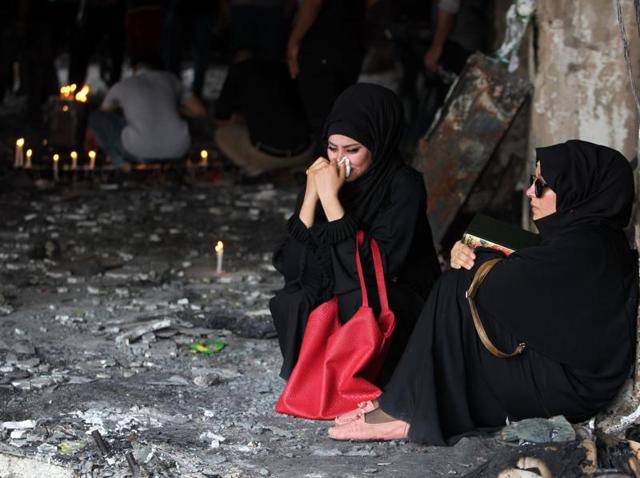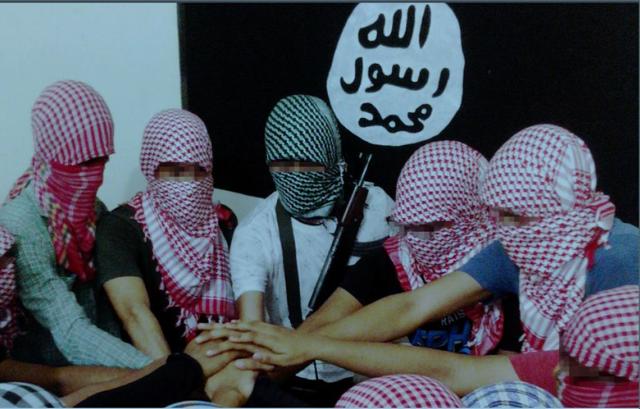Jihad 2.0: How Islamic State has changed global terrorism
The Islamic State’s new strategy is to ‘outsource’ attacks to lone wolves
In just three years since its emergence as the Islamic State in Iraq and Syria, the group based in Raqqa, Syria, has changed the face of global terrorism and thrown up a set of complex challenges for security agencies around the world.

Older terror organisations such as , and closer to home, groups such as Pakistan-based Lashkar-e-Taiba and Jaish-e-Mohammed, have been built around the model of a core leadership and cells of fighters recruited and specially trained to carry out attacks, but the Islamic State has turned this concept on its head by co-opting any jihadi anywhere who is willing to act on its behalf.
The danger posed by such a strategy was driven home to Indian security officials when a group of home-grown jihadis stormed an elite café in the diplomatic quarter of the Bangladeshi capital last week and butchered 20 hostages, including a young Indian woman, before they were gunned down.
According to most accounts emerging from Dhaka, the men who carried out the attack – a mix of youngsters educated in Bangladesh’s top schools and universities and madrasa students – had links to the Jamaat-ul-Mujahideen Bangladesh. And yet it was IS that claimed the attack and posted gruesome photos of the victims, along with an accurate body count, hours before the siege was ended.

The IS outlined its strategy of outsourcing attacks as far back as September 2014, when the group’s spokesman Abu Muhammad al-Adnani essentially said no permission is required for standalone assaults.
In a message advocating attacks by Muslims on civilians in all countries opposing the IS, al-Adnani had said: “Do not ask for anyone’s advice and do not seek anyone’s verdict. Kill the disbeliever whether he is civilian or military, for they have the same ruling. Both of them are disbelievers. Both of them are considered to be waging war (the civilian by belonging to a state waging war against the Muslims).”
The chilling message was repeated in al-Adnani’s speech calling for “lone wolf” attacks during the holy month of Ramzan this year: “The smallest action you do in the heart of their land is dearer to us than the largest action by us…Do not ask for anyone’s permission.”

An IS video released after the Dhaka attack too called on Muslims to carry out attacks in their country if they are unable to travel to Syria. The video, which featured three Bangladeshi fighters, said: “If the kafirs (disbelievers) close the door of hijrah (migration) on you, then open the door of jihad on them…Certainly, your smallest deed on their land is more praiseworthy than our biggest deed here. It is of more use to us and more damaging to them.”
Giving an analogy, a senior Indian intelligence official said: “In the old days, people looking for jobs sent in applications, appeared for interviews and were employed. In today’s digital age, you are connected everywhere and you can work from home.
“The IS model is like the work-from-home model. And it makes our jobs tougher,” said the official, who didn’t want to be named because he wasn’t authorised to brief the media.
Security and intelligence agencies, the official explained, traditionally track terrorist cells through the movement of known members and intercepts of communications between the cell and a group’s core leadership. The tracking of Abu Ahmed al-Kuwaiti, Osama bin Laden’s trusted Pakistani courier, helped American agencies to zero in on the leader, he pointed out.
“But when you have no movements, no connection between the cell and the IS leadership, no long-term communications, what do you track?” he asked.
Read: Indian NSG team to travel to Dhaka to ‘study’ Bangladesh terror attacks
In at least two recent attacks claimed by the IS – the San Bernardino, California shootings that killed 14 and the attack on the Pulse gay nightclub in Orlando, Florida that left 49 dead – the attackers pledged their ‘bay’ah’ or oath of allegiance only during the assault.

In San Bernardino, Pakistani-origin shooter Tashfeen Malik declared allegiance on Facebook while Omar Mateen, the Afghan-American attacker in Orlando, made his bay’ah to IS chief Abu Bakr al-Baghdadi in a 911 call during the carnage.
“The case of Omar Mateen is truly perplexing. This was a guy who pledged allegiance to IS and showed solidarity with al-Nusra Front, which is opposed to IS. Recent revelations about his conflicted sexual identity mean Omar Mateen would hardly have been welcomed with open arms if he had gone to Raqqa,” said another intelligence official, who too spoke on condition of anonymity.
The official was referring to reports that Mateen could have been a closet homosexual as he frequented gay bars and used gay dating apps. The IS is strongly opposed to homosexuals and there have been several reports of gay men being executed by the group by being thrown off high-rise buildings.
Animesh Roul, executive director of Society for the Study of Peace and Conflict, a New Delhi-based think tank, said the time had come for a change of approach for security agencies involved in countering groups such as IS.
“I had someone ask me about IS camps and leaders in Bangladesh. Headquarters, organisations, structures are things of the past. The IS is a completely different beast,” he told Hindustan Times.
“Bangladesh should be an area of focus for us despite the Dhaka government’s repeated denials of the presence of IS and Al Qaeda in the Indian Subcontinent (AQIS). The infrastructure for radicalisation, such as madrasas, exists there and this presents an opportunity for IS and AQIS,” Roul said.
“Besides, there is a lot of evidence of the presence of Bangladeshis from Britain and Canada in the ranks of the IS.”
Sheikh Abu Ibrahim al-Hanif, the head of the IS chapter in Bangladesh, was recently identified by counter-terror experts as Tamim Chowdhury, a Bangladeshi Canadian who graduated from the University of Windsor with bachelor of science degree.
Read: Terror attacks in Islamic countries casts shadow over Eid celebrations in India
According to the latest estimates from Indian security agencies, up to 27 Indian men have gone to Syria and Iraq to fight with IS, and at least six have reportedly died. Almost 25 others have been arrested while in Syria or on their way to the war-torn country.
In May, the IS released one of its trademark slick videos that featured at least five Indian fighters, including Aman Tandel, an engineering student from Thane – the first time its propaganda material has focused on India.
Read: 16 Kerala Muslim youths missing, relatives fear they went to Syria, Iraq
“But these figures could be just the tip of the iceberg. We may never be able to get a fix on everyone in India who may be in touch in some way with the IS,” said the first intelligence official. “We can’t be complacent even for a minute though the majority of Muslims in India don’t back groups like the IS.”
Security officials rued the fact that there were few “moderate Muslim voices” in the public space to counter groups such as IS and more visible preachers and clerics who espouse hardline Islamic or Salafist views.
“There has to be a counter-narrative but we just aren’t seeing it,” said an official.
Lt Gen (retired) Kamal Davar, former head of the Defence Intelligence Agency, said India does have to worry unduly about the IS in the near-term but it cannot afford to let down its guard.
“Though the ISIS is endeavouring to expand its evil footprint in the entire subcontinent, yet it has not managed to make any appreciable headway in India. However, it is also a fact that a few of our misguided, educated Muslim youth are getting swayed by Wahabi propaganda,” he said.
“We have to be conscious of it, we have to watch the madrasas and put our clergy on the job. We’re fortunate the Indian Muslim behaves differently. Hence we have to reach out to him and make sure the idea of India remains an inclusive one.”
Read: Rise of extremism: Struggle for the soul of Bangladesh





